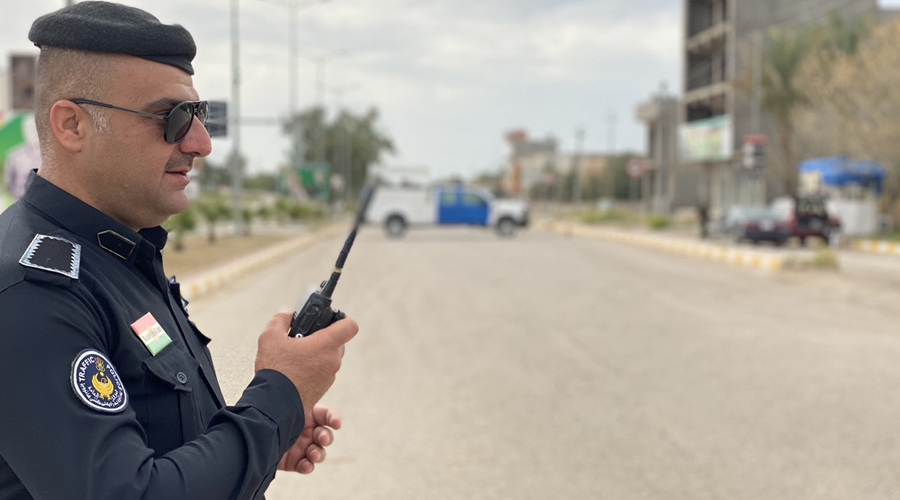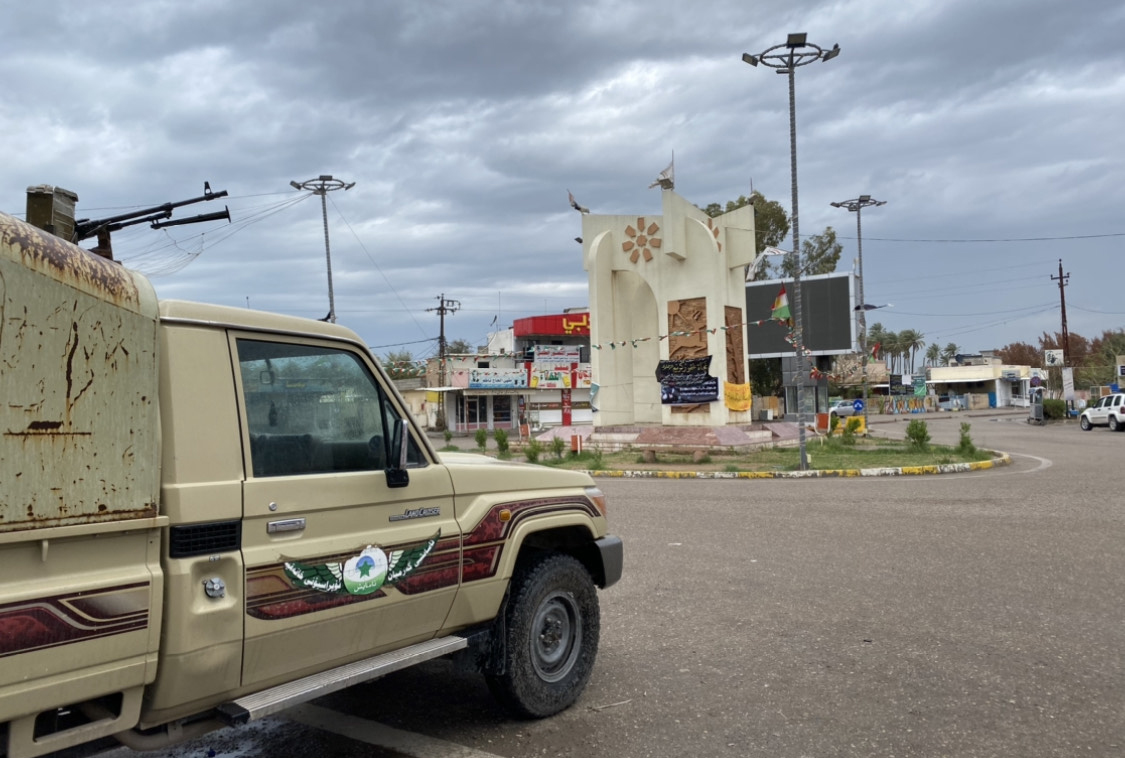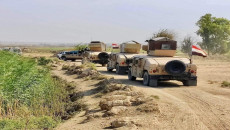The issue of expulsion of the Peshmerga, Asayish, and police forces of the Kurdistan Regional Government KRG from Khanaqin district, northeast of Baghdad, has been suspended, after it became clear that an intelligence report submitted to the Joint Operations Command in Diyala contained "wrong" information about the number of Kurdish armed forces of the KRG deployed in the Kurdish-majority town.
The report, according to a source in the Joint Coordination Center in Diyala who spoke exclusively to (KirkukNow), was prepared by a security intelligence agency in Khanaqin and handed over to the Joint Operations Command in Diyala, which is responsible for the security file throughout the province.
According to the report, "The headquarters of the Patriotic Union of Kurdistan (PUK) Asayish in Khanaqin includes 750 armed members, the Peshmerga headquarters have 300, and the Khanaqin emergency police force 250." The report also concluded that the number of militants is increasing.
This comes at a time when an agreement between the Joint Operations Command in Diyala and PUK officials stipulates that the number of militants present in those headquarters is limited, and their tasks are limited to protecting the Alwand Dam and the KRG-funded civil departments of Khanaqin.
The source anonymously told (KirkukNow) "the report was the reason behind the Iraqi army's demand to evacuate the headquarters of those forces in Khanaqin...but in fact, those numbers were exaggerated and the report contained incorrect information."
Unlike Kirkuk and other disputed areas, the Peshmerga forces, the police, and the Asayish of the regional government returned and were stationed in Khanaqin district for several years, and these forces participate in managing the security file in the district.
Khanaqin District, home to 90,000 Kurds, Arabs and Turkmens, Sunnis and Shias, is part of Diyala province and is one of the disputed territories which extends from Khanaqin, on the border with Iran, to the northern oil-rich city of Kirkuk up to Shingal (Sinjar), home to the Ezidi community, in Mosul, in the far west, on Iraq-Syria borders.
Most of the disputed territories were under control of the Kurdish Peshmerga forces up to October 2017, when the Iraqi Security Forces ISF took over control of these territories following the defeat of ISIS.

Subsequently, an Iraqi army delegation headed by the intelligence official of the Joint Operations Command in Diyala on Sunday, October 9, visited all police, Asayish and Peshmerga headquarters in Khanaqin to verify the correctness of the numbers of militants, their equipment and weapons, according to a source in Khanaqin Emergency Police.
The source confirmed that, "The committee visited the military and security points of the Kurdistan Regional Government on the ground."
The visit came four days after a similar visit in which they demanded the forces of the vacate their headquarters and withdraw from Khanaqin.
According to information obtained by (KirkukNow), the delegation of the Joint Operations Command did not renew its demand to vacate the headquarters on the second visit on October 9.
On the same day, a number of Kurdish activists in Khanaqin visited the District Court and stressed in a statement the need to "prevent sedition by removing the Asayish forces and the police of the regional government from Khanaqin, and they led protests on Tuesday, October 11.
The Iraqi army has suspended its demands of removing the region's forces from Khanaqin, and it is scheduled to hold a meeting soon, including senior officials from Diyala and Sulaymaniyah, to reach a final decision, security sources told (KirkukNow) in Khanaqin.
End of August, the KRG has withdrawn its security forces (Asayish) from the center of Khanaqin whom were replaced with the Iraqi army, following the tensions in Baghdad and the imposition of a curfew in all Iraqi provinces except the Kurdistan Region of Iraq KRI.
The decisions coincided with demonstrations in Baghdad, especially in the heavily fortifies Green Zone and several other Iraqi provinces when supporters of the Shia influential leader Muqtada Sadr came into clashes with security forces and pro-Iran militias of Popular Mobilization Forces PMF, following a message from the movement's leader Muqtada al-Sadr announcing his resignation from political affairs.
Khanaqin district in Diyala province in addition to Kirkuk, part of and Ninewa and Salahaddin, is part of the disputed territories that a three-stage process has been outlined in Article 140 of the Iraqi constitution in 2005 to put an end to Kurdistan Regional Government KRG and the Federal Iraqi government dispute over these areas.
Article 140 stipulates normalization, a population census and a referendum on the status of the territories, yet it has not been materialized up the preset, leaving the area in security gap, missing basic public services.
A joint center of the army and Peshmerga has been established in Khanaqin and several other disputed areas for military coordination to track the remnants of the Islamic State of Iraq and Syria ISIS and tighten security procedures.






